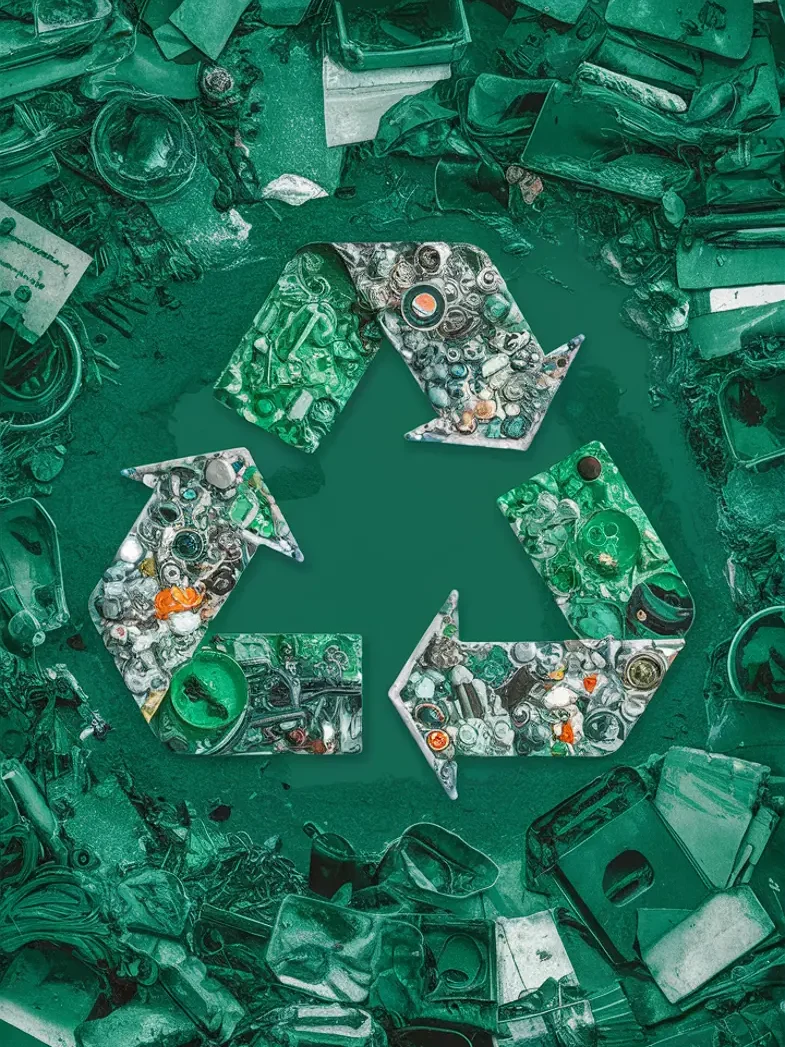Production of secondary raw materials from
industrial waste
The 2021 Statistics on Waste Management in Europe highlight that only 49.6% of all European urban waste was recycled or composted. Despite Italy already being a European leader in the circular economy and particularly in recycling (30 points above the European average), the EU has set a target to achieve 60% reuse and recycling of urban waste by 2030.
Focusing, for example, on plastic waste, it is responsible for 80% of marine pollution (OECD data, Organization for Economic Cooperation and Development). Only 15% of plastic waste is recycled, 25% is destined for waste-to-energy plants, and the remaining 60% is either landfilled or released into the environment. Furthermore, it is important to consider that globally, the amount of plastic produced from virgin fossil sources is eight times higher than recycled plastic.
The circular economy is increasingly pushing for real change in waste production and management. The recovery and reuse of waste not only benefit the environment but also the economy. Rubber, plastic, textiles, and waste biomass are recovered and used as additives in numerous industrial sectors: construction and infrastructure, roads, and clothing.

How Crossing can help
Crossing is developing a technology to employ in various types of waste, currently destined for landfills or waste-to-energy plants, as secondary raw materials for different sectors such as construction, infrastructure, and roads. The Crossing technology allows, for example, in line with the Waste Directive (EU) 2018/851, to replace commercially available additives, currently produced from fossil-based raw materials, with recovered/recycled waste, including biomass. This valorization of waste enables the reduction of environmental impact associated with both waste disposal and current production processes.
Contact us for more information on this and other services offered to businesses. (info@crossing-srl.com)
Case Study
Within the framework of the SARR project (Advanced Systems for Waste Recovery), a protocol has been developed for the recovery of end-of-life plastic waste, which currently only ends up in waste-to-energy plants, as an additive for hot asphalt mixes.
For more information, visit the website: https://www.icer-grp.com/index.php/it/progetti-in-evidenza/progetto-sarr/progetto-sarr

